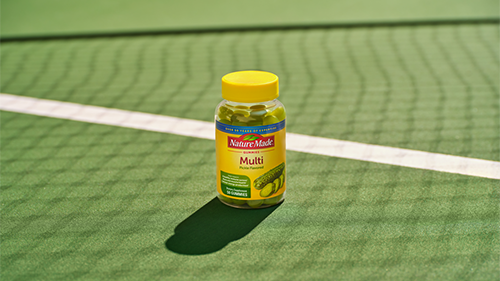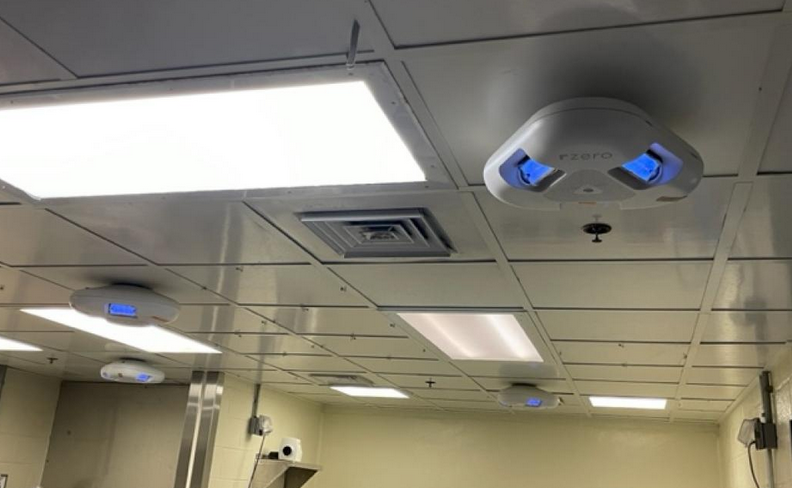A nasal spray for the heart, 6-month BP drug, Nature Made’s weird decision, and more
11 Apr 2024
Posted by Andrew Kantor
Surprise delivery 1: Oral spray for UTIs
Oral meds for treating a urinary tract infection aren’t anything new, but what about a vaccine? And what about one that’s a mouth spray? That’s just what British clinicians say they have in a drug called MV140.
It’s given twice a day for three months — don’t worry, it’s pineapple-flavored — after which “54 percent of study participants remained UTI-free for nine years after the vaccine, with no notable side effects reported.”
They had already shown it worked in the short term, and now they have the long-term safety data. Next they want to expand the test group before talking about bringing it to market.
Why yes, they do call it a “game-changer.”
Surprise delivery 2: Nasal spray for tachycardia
Apparently you can treat abnormal heart rhythm at home. All that’s needed is etripamil, a nasal spray calcium-channel blocker, according to researchers at Weill Cornell Medicine.
Paroxysmal supraventricular tachycardia (PSVT) isn’t usually deadly, but with shortness of breath, chest pain, dizziness, or fainting involved, it can send people to the ER and even end with short-term hospitalization. But with etripamil on hand it’s like having an asthma inhaler — patients “experienced symptom relief on average in 17 minutes.”
This was the second, larger trial of the drug (more than 1,100 patients), designed to show that “etripamil is safe and effective under more real-world circumstances.” Which it did.
Blood pressure: One shot for 6 months
A new drug called zilebesiran, — an investigational drug, we should point out — does well by people who can’t keep their blood pressure under control. A single injection “reduced systolic blood pressure by between 4 to 12 mmHg on average” for at least 3 months and usually twice that.
The basic science:
Zilebesiran works by reducing the body’s production of angiotensinogen, a hormone primarily made in the liver that helps to regulate blood pressure by constricting blood vessels. Reducing blood-vessel constriction allows blood pressure to fall.
It can be used alone, but it works even better in combo with other anti-hypertensives.
Big ol’ caveat: Although the study was done out of Brigham and Women’s Hospital in Boston, it was funded by Alnylam Pharmaceuticals, the manufacturer of zilebesiran. Take from that what you will.
Short takes
Congrats to UGA CoP
The Dawgs moved up nine spots in the US News & World Report rankings of US pharmacy schools, now coming in at #15 out of 141. High-five!
RSV vax for everyone?
Pfizer says its Abrysvo RSV vaccine works a treat for folks under 60. It’s going to ask for approval for the vaccine at least for high-risk people in the 18-59 category. Ka-ching!
No Tylenol/autism connection
Acetaminophen during pregnancy doesn’t increase the risk of having a kid with autism, ADHD, or an intellectual disability — so says a big US/Swedish study using data from 2.4 million Swedish kids, including 186,000 whose mothers used acetaminophen during pregnancy, even if they called it “paracetamol.”
Why not to drink at work
Imagine what went down at Nature Made HQ:
Marketing director: I’m going on vacation for two weeks. Don’t do anything stupid while I’m away.
Jimmy from marketing: Sure thing, boss. So, everyone, what sports seasons are starting soon?
Kevin from marketing: Baseb—
Susan from marketing: April is National Pickleball Month!
Jimmy: Great! How can we celebrate it?
Susan: Pickled-flavored vitamin gummies!

Kevin (quietly): I was gonna suggest Cracker Jack-flavored.
Jimmy and Susan: Shut up, Kevin.
It’s almost as if Covid is an airborne virus
Researchers at the University of Rochester tested a crazy theory hypothesis: Could improving air quality and circulation cut Covid infections?
They tested the ventilation in 100 rooms of various sizes on a campus for special needs kids by measuring carbon dioxide levels. Surprise, surprise! Kids who spent more time in rooms with “suboptimal ventilation” were more likely to get Covid.
They also found that spending time in the rooms with newer ventilation systems (MERV-13, if you’re keeping score) reduced the incidence of Covid thanks to better filtering.
Safer UV kills airborne germs
Meanwhile downstate at Columbia, researchers tested ceiling-mounted far-UV lights as germ killers. “Far-UV” doesn’t hurt people (it can’t damage living skin) but it’s brutal for bacteria. They mounted the devices in a room with lab mice, where cage-cleaning releases a ton of norovirus particles, then tested the air.
“Based on our initial sensitivity tests, we expected to see a reduction in airborne virus of around 66%,” said the senior author. Instead, “The result—a reduction in infectious airborne viruses of 99.8%—surpassed expectations and was far greater than what could be achieved by typical air filtration and ventilation.”
Now they’re testing the lights in more locations, with the goal of being able to use the devices to keep public spaces disease-free.



